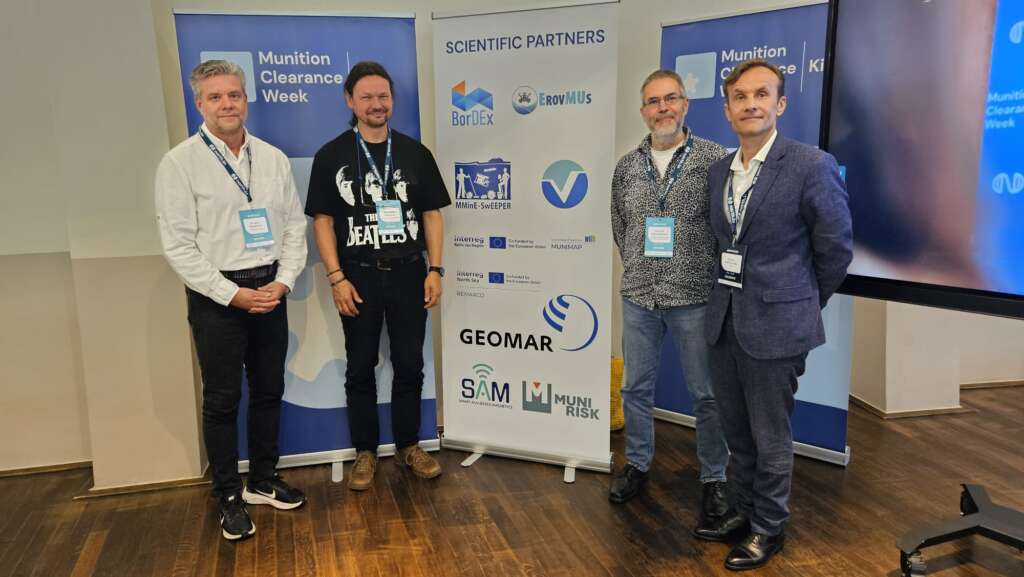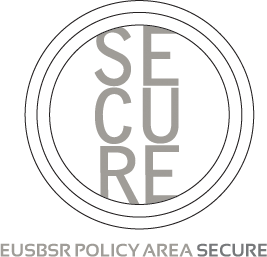At the Kiel Munition Clearance Week 2025 (17–20 June, Kiel, Germany), CBSS Adviser and PA Secure coordinator Andriy Martynenko moderated the Scientific Plenary Session on submerged munitions. The week brought together science, industry and public authorities to discuss how to deal with the vast legacy of munitions on the seabed at a time when offshore energy, critical infrastructure and security concerns in European waters are rapidly growing.
The plenary showcased three EU-funded complementary projects working on submerged munitions in the Baltic Sea and beyond: MUNIMAP , MUNI-RISK and MMinE-SwEEPER. MUNIMAP focuses on legal and administrative roadmaps for remediation; MUNI-RISK develops practical tools and guidelines for risk assessment and decision-making; and MMinE-SwEEPER advances technologies and capacities for non-military UXO clearance. The CBSS is a political dialogue and communication partner in both MUNIMAP and MUNI-RISK, helping to connect scientific results with regional cooperation and policy processes in the Baltic Sea Region.
What do experts worry about most?
At the plenary, over 100 experts from 13 countries used Mentimeter to share their views in real time. A clear majority described themselves as moderately or extremely concerned about munitions in the sea. When asked about their main concern, answers most often pointed to long-term environmental impacts on marine ecosystems and to risks for offshore workers, fisheries and critical subsea infrastructure. Read full Mentimeter results here:
Linking regional debates to the European Ocean Pact
The discussion in Kiel coincides with a new European policy backdrop. In June 2025, the European Commission adopted the European Ocean Pact, which, among other goals, announces a comprehensive UXO strategy to remove unexploded ordnance from European waters, starting in the Baltic and North Seas.
Why PA Secure is following underwater munitions
Handling submerged munitions is usually the task of navies, environment ministries and specialised clearance companies, rather than civil protection agencies – PA Secure’s core stakeholders. However, the broader underwater security agenda is increasingly relevant for societal security in the Baltic Sea Region: offshore wind, energy cables and data infrastructure are expanding, while attacks or accidents affecting subsea infrastructure are now recognised as strategic risks. Submerged munitions can complicate both protection and repair of these assets.
For PA Secure, following the submerged munitions agenda is therefore informative and strategically important. It helps us understand how environmental, security and infrastructure risks intersect – and how regional cooperation can support long-term resilience in the Baltic Sea Region. The CBSS/PA Secure team will continue working with partners in MUNIMAP, MUNI-RISK, MMinE-SwEEPER and beyond to keep scientific knowledge, expert dialogue and political processes closely connected.
LinkedIn summary of the session and photos


